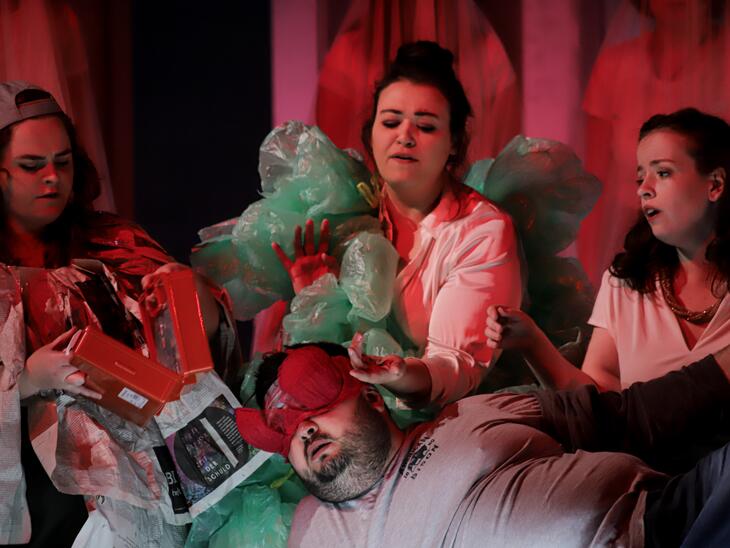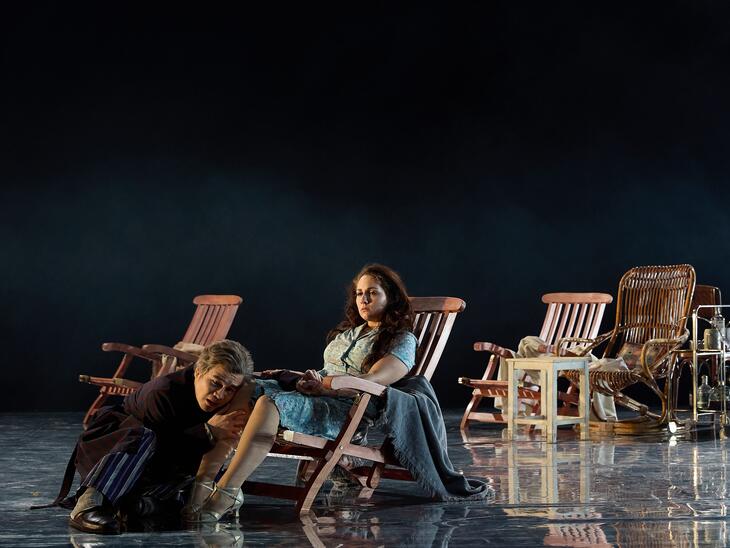ORPHEUS, music teacher: Niklas Meyer (Dec. 15/Dec. 17), Dagur Thorgrimsson (Dec. 16/Dec. 18) EURYDIKE, his wife: Regina Koncz (Dec. 15.12./17.12.), Maria Agustina Calderon (16.12./18.12.) JUPITER, Lord of Olympus: Jakob Hoffmann (15.12./17.12.), Máté Herczeg (16.12./18.12.) JUNO, his wife: Dares Hutawattana VENUS, Goddess of Love: Yekaterina Badeso (15.12./17.12.), Donata Meyer-Kranixfeld (12/16/12/18) DIANA, Goddess of Hunting: Donata Meyer-Kranixfeld (12/15/12/17), Yekaterina Badeso (12/16/12/18.) MINERVA, Goddess of Wisdom: Heekyung Park (12/15/17), Emilie Christensen (12/16/18).) BACCHUS, God of Wine: Dominik Schumertl MARS, God of War: Máté Herczeg (Dec. 15/Dec. 17), Jakob Hoffmann (Dec. 16/Dec. 18) MERCUR, Messenger of the Gods: Dagur Thorgrimsson (Dec. 15.12./17.12.), Niklas Meyer (16.12./18.12.) CUPIDO, God of Love: Emilie Christensen (15.12./17.12.), Heekyung Park (16.12./18.12.) THE PUBLIC OPINION: Constantin Zimmermann PLUTO / ARISTÄUS: Johannes Hubmer HANS STYX, his servant: Jakob Mitterrutzner










